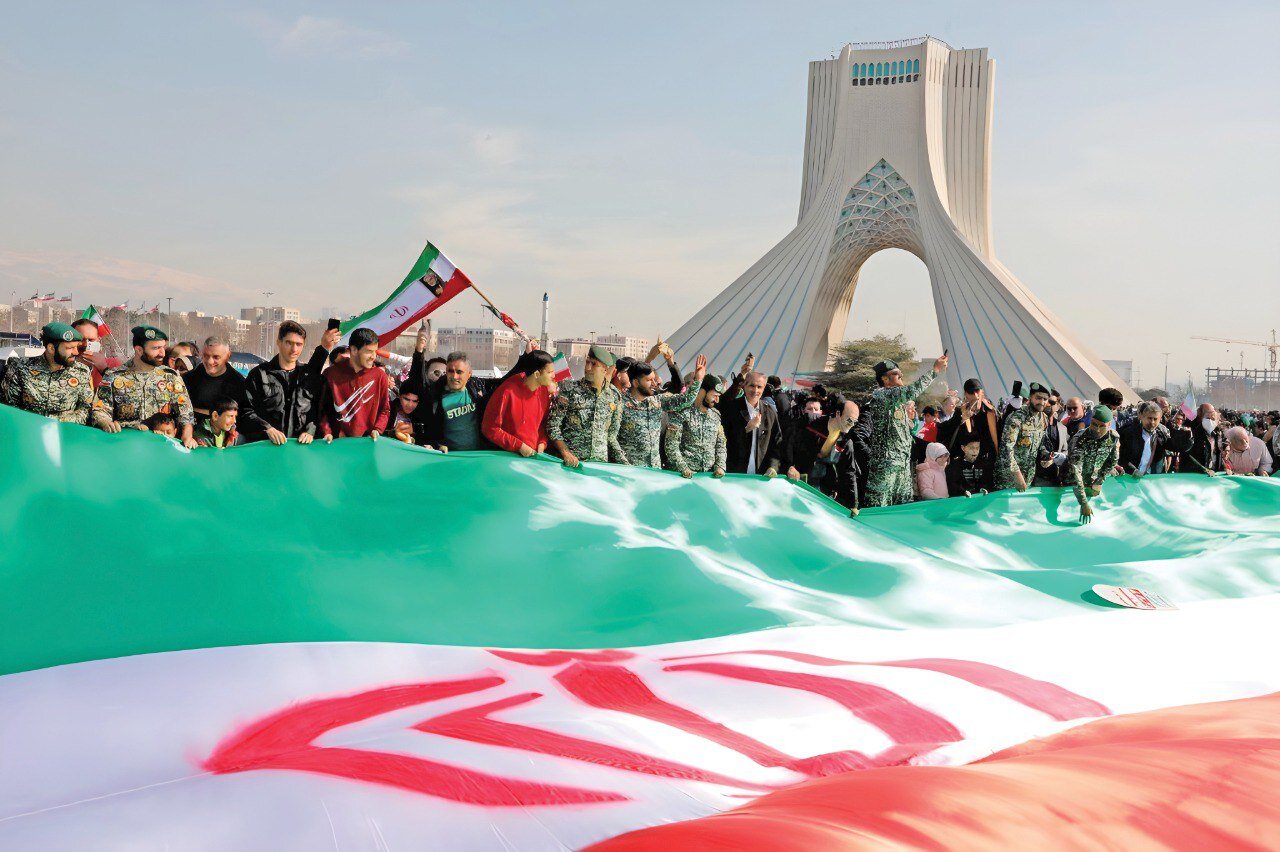From Zahhak to Netanyahu: Iran’s eternal struggle against division

TEHRAN – Iran is a nation composed of different groups of people. Persians, Azeris, Gilaks, Mazandaranis, Balochis, Turkmens, Kurds, Lors, and Arabs have long lived alongside each other within a geographical expanse that was once far larger than what is known as Iran today.
For millennia, these communities have maintained their unique cultures and languages while using Persian (Farsi) as a common means of communication, connecting regions near and far. In recent decades, rising literacy and deeper social integration have only strengthened these ties and solidified a resilient Iranian identity – one further supported by DNA studies revealing close genetic links among the country’s diverse ethnic groups. An Iranian from Sistan and Baluchestan shares more with a Kurd from Kermanshah than either would with outsiders.
That, coupled with all the years Iranians have fought, traded, married and buried their dead under the same sky, is what has sustained Iran for thousands of years and made it the oldest continuously existing nation in history. Throughout the years, whether facing Alexander's armies, Arab caliphates, Mongol hordes, or British oil barons, the unity and loyalty of the Iranian people have prevailed. Today, in 2025, that very unity appears to be a primary target for Iran's adversaries, particularly Israel and the United States.
The “Greater Israel” requires disintegration of Iran
When Jewish refugees arrived in Palestine during the 1940s to flee the horrors of WWII, Zionist organizations had already been working for some years to establish a Jewish state there, efforts that commenced after the Balfour Declaration in 1917. After the official establishment of Israel and with time, different Zionist factions began to openly advocate for a “Greater Israel”, encompassing all Palestinian lands as well as parts of Jordan, Lebanon, Syria, Iraq and even Saudi Arabia. While no Israeli official has openly admitted to this ideology, Israel's continued failure to define its borders and its annexation of the West Bank and the Golan Heights in Syria suggest a persistent commitment to the vision of a Greater Israel.
Realizing the vision of a Greater Israel not only necessitates the removal of existing central governments and autonomous regions within these territories but also requires neutralizing any significant regional power capable of opposing Israeli expansion. Consequently, Iran, the most significant non-Palestinian hurdle to realizing this expansionism, must be addressed.
Israel and the United States have used various tactics to harm Iran in the past 46 years. From sanctions to military action, the two have exhausted different means to weaken the central government and wrought chaos within Iran. One notable tactic has involved fueling and spurring separatist sentiments within the country, through propaganda campaigns as well as the funding and arming of separatist groups based near the Iranian borders.
Most recently, during the 12-day Iran-Israel war in June, Israeli media unusually laid bare the regime's core objectives. The Jerusalem Post, for instance, wrote that Washington must forge a regional coalition for Iran's "partition" and encourage "long-term plans for a partitioned or federalized Iran." This plan aims to separate Azeris, Kurds, and Baluchis from the rest of the Iranian population. But Israel's key focus has always been the Kurds, who are scattered across the region in Iran, Syria, Iraq, and Turkey.
Where is the origin of the Kurdish people?
“The Kurdish people are among the most authentically Iranian people of Iran,” said Professor Mahmoud Jafari Dehaghi, a renowned scholar of Iranian history and ancient Iranian languages at Tehran University. He explains, "The Kurdish language is a modern Iranian language, classified linguistically as part of the northwestern languages spoken on the Iranian plateau."
In Ferdowsi's Shahnameh, a foundational epic poem of Persian literature composed over 1,000 years ago, Kurds join an uprising by Kaveh the Blacksmith against Zahhak, the most infamous tyrannical figure in the epic, and help liberate Iran, the professor stated.
"Kurds are a principal population group within Iran," Professor Dehaghi added. "Historically, they lived entirely under Iranian sovereignty until after World War I, when colonial powers partitioned some Kurdish-inhabited regions among neighboring countries."
In its efforts to destabilize Iran, however, Israel is constantly fabricating Kurdish and Iranian history. A recent post on X by Israeli Prime Minister Benjamin Netanyahu's son exemplifies this blatant attempt to sow discord between Kurds and other Iranians.
“The Kurds are the largest stateless people in the world, with a population of around 45 million. They are secular and allies of the West. Their territory is divided and occupied by Turkey, Iran, Iraq, and Syria. Why haven’t France, Spain, Ireland, the UK, Norway, Portugal, Canada, Germany, Malta, and Slovenia recognized Kurdistan?” the son of the war criminal wrote last week.
Ardeshir Pashang, a West Asia scholar and Kurdish affairs specialist (author of "The Kurds in the Iran-Iraq War") says the Kurdish people have occasionally been used as a tool by Israel. "Let's be clear - Israel's sudden 'pro-Kurdish' rhetoric is pure political theater,” he told the Tehran Times. “Israel’s 70-year record proves they've never been supporters of the Kurdish people. In fact, at various points, they have dealt blows to Kurdish movements and leaders.”
Pashang mentioned how Mossad operatives were instrumental in the 1999 capture of PKK leader Abdullah Ocalan, and how Israel has repeatedly provided Turkey with strategic support for anti-Kurdish operations.
“These latest PR gestures are transparent attempts to destabilize Iran, Turkey, Syria and Iraq by exploiting Kurdish aspirations. The irony? Most Kurdish factions have historically stood with Palestinians against Israeli occupation. Tel Aviv's sudden 'concern' for Kurds is about as credible as a fox offering to guard a chicken coop” the expert concluded.
Leave a Comment